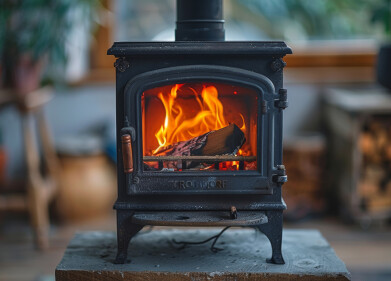Air clean up
Can Indoor Pollution Cause Cardiovascular Disease?
Apr 26 2018
A new study from China has established causal links between indoor air pollution caused by the use of solid fuels in cooking food and heating the home and a heightened risk of cardiovascular disease, such as heart attack and stroke.
Indoor air pollution has been recognised as a greater threat than outdoor air pollution for some time now, with the World Health Organisation (WHO) estimating that in excess of four million people die prematurely from indoor air pollution every year. This study adds to a growing body of evidence that indoor pollution – and in particular, that caused by the combustion of solid fuels such as wood, charcoal and crop residue – is one of the world’s deadliest killers.
Chinese insight
China has long been regarded as one of the biggest causes of air pollution worldwide; in 2011, it was found that Chinese power plants emit as much NOx as all the passenger cars in the world. However, the country also suffers from a less publicised but equally as crippling indoor air pollution problem, as well.
The new study was conducted by four different scholarly institutes in China, working in collaboration with the University of Oxford in the UK, and analysed data from 271,000 Chinese citizens living in rural areas of the country between 2004 and 2008. The results showed that those who cooked using solid fuels were 20% more likely to suffer cardiovascular complications, while those who used solid fuels to heat their property were 29% more likely.
The results were arrived at after compensating for personal and societal factors, such as age, gender, alcohol intake, smoking status, exercise levels, diet, weight and socio-economic background. Furthermore, this risk of cardiovascular disease increased in tandem with the length of time that such fuels were being used.
Clean fuels and proper ventilation the way forward
By switching from solid fuels to cleaner sources of energy (such as gas or electricity), residents could reduce their risk of contracting a cardiovascular disease by 17% with regards to cooking and a massive 43% with regards to heating. This was found to be true even if the subjects had been using solid fuels for an extended period prior to the switch, as well.
“These findings are important because even though people might have been using solid fuels for a long time, there are still clear health benefits in switching to cleaner fuels,” explained Professor Tangchun Wu from the Huazhong University of Science and Technology. “Installing ventilation facilities will be a cheaper and effective alternative for those who cannot switch to clean fuels.”
Indeed, a properly ventilated kitchen (and household in general) is key to reducing indoor air pollution, even when cooking with traditionally cleaner forms of fuel. A recent study found that frying can create "oil jet forests" when oil reacts with miniscule droplets of water, thus potentially endangering human health. Ventilation is the key.
Events
Feb 05 2025 Nantes, France
Feb 16 2025 Kampala, Uganda
Feb 26 2025 Chennai, India
Feb 26 2025 Tulsa, OK, USA
WATERTECH CHINA (GUANGDONG) 2025
Mar 05 2025 Guangdong, China












